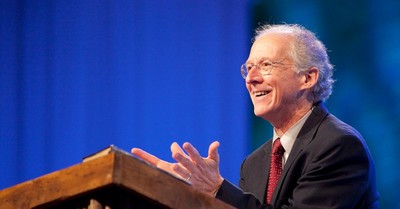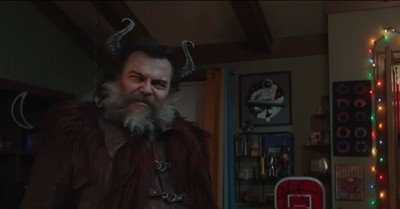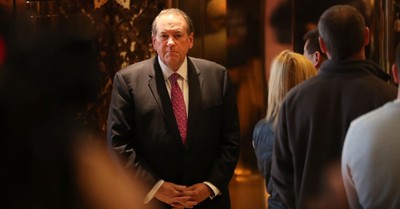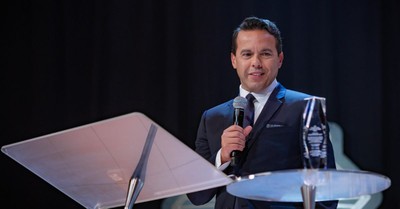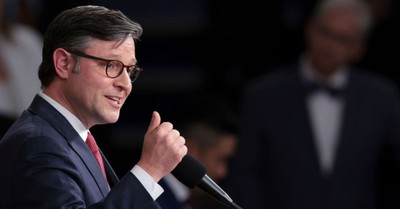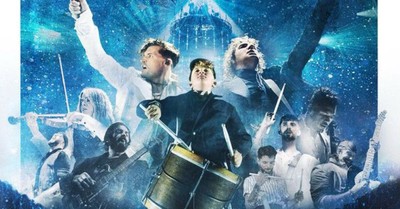Victorious Warriors in the 'Long Defeat'
- James Tonkowich ReligionToday.com Columnist
- Updated Apr 22, 2013

Thomas Sowell, in his 1999 book Barbarians Inside the Gates, began with the question, “Is it hopeless?”
Good question and one that, 14 years later, many more people are asking with greater urgency. The economy remains is shambles. American marriage and family culture is eroding. The threat of nuclear bombs hangs over the world. And at home our basic freedoms — religion, speech — are under assault. Just recently it was discovered that in a U.S. Army briefing on extremism listed, along with extremist groups such as al Qaeda, Hamas, and the Ku Klux Klan, Evangelical Christianity and Catholicism. In fact, Evangelical Christianity was put at the top of the list.
Apparently the barbarians are not only inside the gates, they have, in some cases, taken over. So is it hopeless?
Before we decide, let’s take a moment to read some poetry.
In 1911, G.K. Chesterton wrote the poem "The Ballad of the White Horse." It’s the story of King Alfred who lived from 849 to 899 and ruled Wessex in southwest England. And as the poem opens, we find Alfred in defeat, in despair and in hiding.
And naught was left King Alfred
But shameful tears of rage,
In the island in the river
In the end of all his age.
In the island in the river
He was broken to his knee:
And he read, writ with an iron pen,
That God had wearied of Wessex men
And given their country, field and fen,
To the devils of the sea.
“The devils of the sea” were Vikings. Norsemen from Denmark — real and actual barbarians — had invaded Wessex destroying villages, burning monasteries and churches, killing his people and scattering his army. And so Alfred hid alone pondering how it was that the heathen barbarians had managed to crush his Christian kingdom.
But God — don’t you love sentences that begin that way? — but God had not forgotten Alfred or Wessex. Alfred sees a vision and is instructed to gather whatever army he can muster and drive out the Danes.
Now you’d think that given a heavenly vision, success would be assured, but is was not assured. There are no guarantees for Alfred in the message from God. He is not to presume on the heavenly vision for victory (pride) nor is he to fall into grim fatalism as he considers the greatness and strength of the Viking hoard (despair). The vision is as realistic as it is inscrutable:
I tell you naught for your comfort,
Yea, naught for your desire,
Save that the sky grows darker yet
And the sea rises higher.
Night shall be thrice night over you,
And heaven an iron cope.
Do you have joy without a cause,
Yea, faith without a hope?
After the vision, Alfred is filled with new joy and goes to seek out his last few generals. Why new joy? Because his eyes are no longer looking earthward. Instead, they’ve been raised toward heaven, that is, raised beyond the present difficulties to eternal verities.
He tells his first recalcitrant recruit that he is raising an army in response to a heavenly vision, but with no promise of victory.
For I go gathering Christian men
From sunken paving and ford and fen,
To die in a battle, God knows when,
By God, but I know why.
God enlists us to fight the barbarians in the name of Christian civilization. The battle, as Alfred discovered, really does belong to the Lord (1 Samuel 17:47). And win or lose, we belong to him.
That last bit is the tough part. How much Christian engagement in politics over the past few decades has been with the presumption that since God is on our side we can’t possibly lose? Our cause is just (and it is) ergo victory must certainly be assured. Right?
Well, not exactly. History and experience tell us otherwise. After all, we’ve just passed Good Friday. And while I know that the great defeat of the cross was actually the great victory and that the ugly ignominy of Jesus’ death was his greatest glory, he was, nonetheless, beaten, mocked, nailed to the cross and killed. While God brought victory out of defeat, that didn’t make defeat any less real.
Alfred’s first sortie against the Danes results in retreat and as Alfred contemplates next steps, soldiers begin slipping quietly away. So Alfred blows his battle horn. Will they, he asks, risk death and defeat or “Are slavery and starvation flowers / That you should pluck them so?” That is, will they go on fighting for a just cause even if the result is death and defeat or will they choose the slow death and defeat of being crushed bit by bit by the barbarians?
With neither the confidence of pride nor the fatalism of despair, Alfred and his troops attack again and this time, much to their surprise, they win, driving the Danes out of the land. Their victory ushers in years of prosperity and peace until someone commented, “The king is old.”
And even as he said it
A post ran in amain,
Crying: "Arm, Lord King, the hamlets arm,
In the horror and the shade of harm,
They have burnt Brand of Aynger's farm—
The Danes are come again!”
The barbarians returned just as they always do and King Alfred, as old as he was, went out once again to meet them. As he prepared, Alfred mentions the barbarians of Chesterton’s days and ours:
They shall not come with warships,
They shall not waste with brands,
But books be all their eating,
And ink be on their hands.
Not with the humour of hunters
Or savage skill in war,
But ordering all things with dead words,
Strings shall they make of beasts and birds,
And wheels of wind and star.
They shall come mild as monkish clerks,
With many a scroll and pen;
And backward shall ye turn and gaze,
Desiring one of Alfred's days,
When pagans still were men.
So is it hopeless? Yes and no.
J.R.R. Tolkien wrote: “I am a Christian … so that I do not expect ‘history’ to be anything but a ‘long defeat’ — though it contains … some samples or glimpses of final victory.” And so with neither the smirk of assurance nor the grim face of doom, we happy warriors of the Church militant soldier on. How this chapter of the world’s history ends up, we cannot say. But we march nonetheless to defend the good, the true, and the beautiful and, we pray, to bring about yet another sample of final victory, another glimpse of grace, another foretaste of the certain Kingdom of love and light that will have no end.













